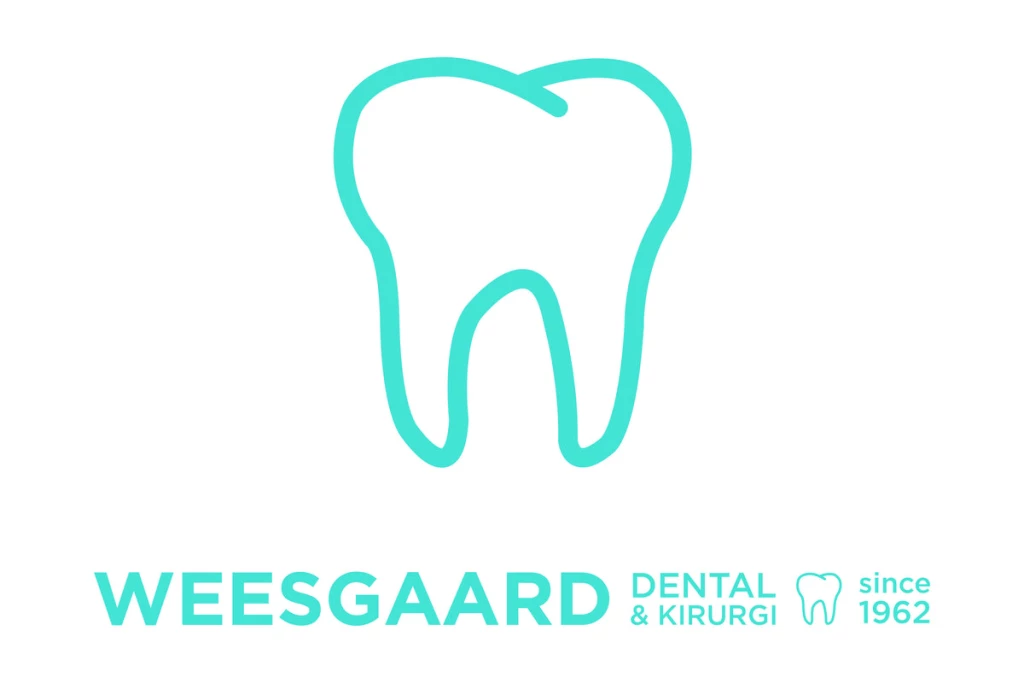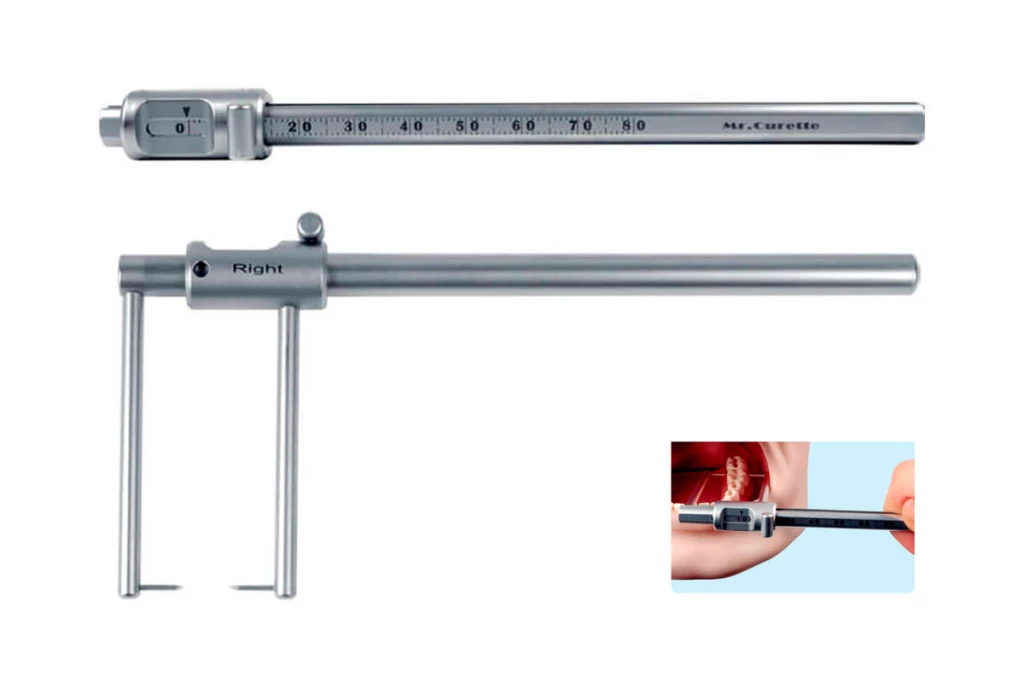


Alveolar thickness gauge
Sold out
The item you're interested in is currently out of stock. Explore our catalog for a wide range of similar products
Sold out
The item you're interested in is currently out of stock. Explore our catalog for a wide range of similar products
Description
Common characteristics
Alveolar thickness gauges are essential tools in dentistry, particularly in the field of implantology. They are designed to measure the thickness of the alveolar bone, which is crucial for successful dental implant placement. Here are some common characteristics of alveolar thickness gauges:
Precision Measurement
One of the primary characteristics of an alveolar thickness gauge is its ability to provide precise measurements. This precision is vital for ensuring that dental implants are placed in a stable and secure manner.
Calibration
Most alveolar thickness gauges come with a calibration feature that allows dental professionals to ensure accuracy. Regular calibration helps maintain the reliability of the measurements taken.
Material Composition
Alveolar thickness gauges are typically made from high-quality stainless steel or other durable materials. This ensures longevity and resistance to corrosion, which is essential in a clinical environment.
Ergonomic Design
The design of these gauges often includes ergonomic features that enhance usability. A comfortable grip allows for better control during measurements, reducing the risk of errors.
Measurement Range
Alveolar thickness gauges usually have a specific measurement range that accommodates various clinical scenarios. This range is crucial for assessing different patients with varying bone thicknesses.
Digital vs. Manual
- Digital Gauges: These offer electronic readouts, making it easier to obtain and record measurements quickly.
- Manual Gauges: While they may require more effort to read, they are often more affordable and do not rely on batteries.
Portability
Many alveolar thickness gauges are designed to be portable, allowing dental professionals to easily carry them between different treatment rooms or locations. This portability is essential for practitioners who provide mobile dental services.
Ease of Use
Alveolar thickness gauges are designed for ease of use, often featuring straightforward mechanisms for taking measurements. This user-friendly design helps reduce the learning curve for new dental professionals.
Compatibility with Other Tools
These gauges are often compatible with other dental tools and imaging systems, allowing for a comprehensive assessment of the patient's oral health. This compatibility enhances the overall efficiency of the dental practice.
Cost-Effectiveness
Investing in a quality alveolar thickness gauge can be cost-effective in the long run. The accuracy and reliability of these tools can lead to better patient outcomes and reduced complications, ultimately saving time and resources.
Indications for the use in dentistry
In the field of dentistry, the alveolar thickness gauge is an essential tool that aids in various clinical assessments and treatment planning. Understanding the indications for its use can significantly enhance patient outcomes and streamline procedures. Below are key indications for utilizing an alveolar thickness gauge in dental practice.
1. Implant Placement Assessment
One of the primary indications for using an alveolar thickness gauge is during the assessment for dental implant placement. Accurate measurement of the alveolar bone thickness is crucial for:
- Determining Bone Quality: Assessing the density and quality of the bone can influence the choice of implant type and size.
- Planning Surgical Approach: Understanding the thickness helps in planning the surgical technique, including flap design and osteotomy.
2. Bone Grafting Procedures
In cases where bone grafting is required, the alveolar thickness gauge plays a vital role in:
- Evaluating Defects: Measuring the thickness of the alveolar ridge allows for better evaluation of bone defects and the need for grafting.
- Choosing Graft Material: Accurate measurements help in selecting the appropriate graft material and technique for optimal results.
3. Orthodontic Treatment Planning
For orthodontic treatments, the alveolar thickness gauge can assist in:
- Assessing Bone Support: Understanding the thickness of the alveolar bone is essential for determining the stability of teeth during orthodontic movement.
- Predicting Tooth Movement: Measurements can help predict how teeth will respond to forces applied during treatment.
4. Periodontal Assessment
In periodontal therapy, the alveolar thickness gauge is useful for:
- Evaluating Bone Loss: Measuring the thickness of the alveolar bone can help assess the extent of periodontal disease and bone loss.
- Guiding Surgical Interventions: Accurate measurements can guide flap surgery and regenerative procedures.
5. Pre-Operative Planning for Extractions
Before tooth extractions, especially in cases of impacted teeth, the alveolar thickness gauge can be used to:
- Assess Bone Integrity: Understanding the thickness of the surrounding bone can help predict complications during extraction.
- Plan for Socket Preservation: Accurate measurements can guide the planning of socket preservation techniques post-extraction.
6. Monitoring Changes Over Time
Regular use of the alveolar thickness gauge can aid in:
- Tracking Bone Remodeling: Monitoring changes in alveolar thickness over time can provide insights into the effectiveness of treatments.
- Assessing Healing Post-Surgery: Measurements can help evaluate the success of surgical interventions and the healing process.
In summary, the alveolar thickness gauge is a versatile tool in dentistry with numerous indications that enhance clinical decision-making and improve patient care. Its application spans various areas, including implantology, orthodontics, periodontics, and surgical planning, making it an invaluable asset in modern dental practice.
Benefits of using in dental practice
In the ever-evolving field of dentistry, precision and accuracy are paramount. One of the essential tools that has gained popularity among dental professionals is the alveolar thickness gauge. This specialized instrument offers numerous benefits that enhance clinical outcomes and improve patient care.
Enhanced Diagnostic Accuracy
The alveolar thickness gauge allows dentists to measure the thickness of the alveolar bone accurately. This precision is crucial for diagnosing various dental conditions, including periodontal disease and bone loss. By obtaining accurate measurements, practitioners can make informed decisions regarding treatment plans.
Improved Treatment Planning
With the information gathered from the alveolar thickness gauge, dentists can tailor their treatment plans to meet the specific needs of each patient. For instance, when planning for dental implants, understanding the alveolar bone's thickness helps in selecting the appropriate implant size and type, ensuring better integration and stability.
Minimized Surgical Risks
Using an alveolar thickness gauge can significantly reduce the risks associated with surgical procedures. By accurately assessing bone thickness, dentists can avoid complications such as perforation of the sinus or damage to adjacent structures. This leads to safer surgical outcomes and enhances patient safety.
Facilitating Bone Grafting Procedures
In cases where bone grafting is necessary, the alveolar thickness gauge plays a vital role. It helps in evaluating the existing bone structure, allowing for more effective grafting techniques. This ensures that the graft material is placed in the optimal location, promoting better healing and integration.
Enhanced Patient Communication
Utilizing an alveolar thickness gauge can also improve communication with patients. By providing visual representations of bone measurements, dentists can explain treatment options more effectively. This transparency fosters trust and helps patients understand the importance of recommended procedures.
Time Efficiency
Incorporating an alveolar thickness gauge into dental practice can streamline the diagnostic process. With quick and accurate measurements, dentists can save valuable time during patient assessments, allowing for more efficient scheduling and improved workflow.
Cost-Effectiveness
Investing in an alveolar thickness gauge can lead to long-term cost savings for dental practices. By enhancing diagnostic accuracy and reducing surgical complications, practitioners can minimize the need for follow-up procedures and additional treatments, ultimately benefiting both the practice and the patient.
Conclusion
In summary, the alveolar thickness gauge is an invaluable tool in modern dental practice. Its benefits range from improved diagnostic accuracy to enhanced patient communication and cost-effectiveness. By integrating this instrument into their practice, dentists can elevate the standard of care they provide, ensuring better outcomes for their patients.
Sold out
The item you're interested in is currently out of stock. Explore our catalog for a wide range of similar products